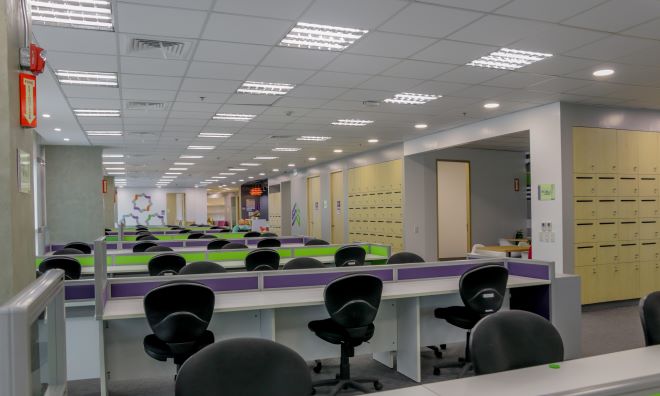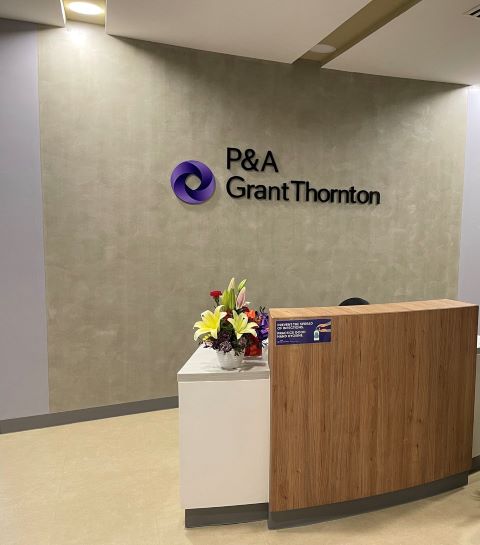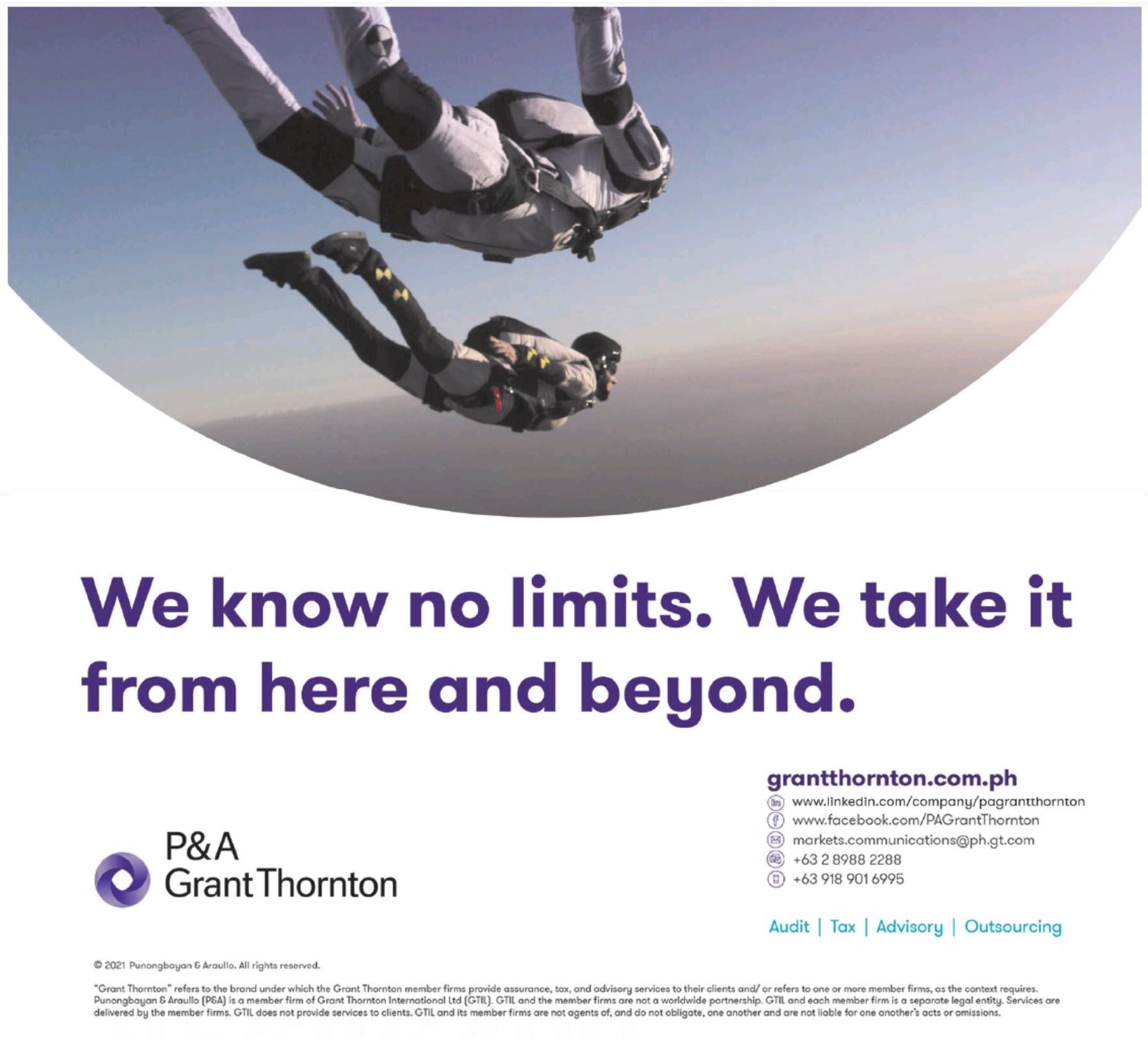-
Audit approach overview
Our audit approach will allow our client's accounting personnel to make the maximum contribution to the audit effort without compromising their ongoing responsibilities
-
Annual and short period audit
At P&A Grant Thornton, we provide annual and short period financial statement audit services that go beyond the normal expectations of our clients. We believe strongly that our best work comes from combining outstanding technical expertise, knowledge and ability with exceptional client-focused service.
-
Review engagement
A review involves limited investigation with a narrower scope than an audit, and is undertaken for the purpose of providing limited assurance that the management’s representations are in accordance with identified financial reporting standards. Our professionals recognize that in order to conduct a quality financial statement review, it is important to look beyond the accounting entries to the underlying activities and operations that give rise to them.
-
Other Related Services
We make it a point to keep our clients abreast of the developments and updates relating to the growing complexities in the accounting world. We offer seminars and trainings on audit- and tax-related matters, such as updates on Accounting Standards, new pronouncements and Bureau of Internal Revenue (BIR) issuances, as well as other developments that affect our clients’ businesses.
-
Tax advisory
With our knowledge of tax laws and audit procedures, we help safeguard the substantive and procedural rights of taxpayers and prevent unwarranted assessments.
-
Tax compliance
We aim to minimize the impact of taxation, enabling you to maximize your potential savings and to expand your business.
-
Corporate services
For clients that want to do business in the Philippines, we assist in determining the appropriate and tax-efficient operating business or investment vehicle and structure to address the objectives of the investor, as well as related incorporation issues.
-
Tax education and advocacy
Our advocacy work focuses on clarifying the interpretation of laws and regulations, suggesting measures to increasingly ease tax compliance, and protecting taxpayer’s rights.
-
Business risk services
Our business risk services cover a wide range of solutions that assist you in identifying, addressing and monitoring risks in your business. Such solutions include external quality assessments of your Internal Audit activities' conformance with standards as well as evaluating its readiness for such an external assessment.
-
Business consulting services
Our business consulting services are aimed at addressing concerns in your operations, processes and systems. Using our extensive knowledge of various industries, we can take a close look at your business processes as we create solutions that can help you mitigate risks to meet your objectives, promote efficiency, and beef up controls.
-
Transaction services
Transaction advisory includes all of our services specifically directed at assisting in investment, mergers and acquisitions, and financing transactions between and among businesses, lenders and governments. Such services include, among others, due diligence reviews, project feasibility studies, financial modelling, model audits and valuation.
-
Forensic advisory
Our forensic advisory services include assessing your vulnerability to fraud and identifying fraud risk factors, and recommending practical solutions to eliminate the gaps. We also provide investigative services to detect and quantify fraud and corruption and to trace assets and data that may have been lost in a fraud event.
-
Cyber advisory
Our focus is to help you identify and manage the cyber risks you might be facing within your organization. Our team can provide detailed, actionable insight that incorporates industry best practices and standards to strengthen your cybersecurity position and help you make informed decisions.
-
ProActive Hotline
Providing support in preventing and detecting fraud by creating a safe and secure whistleblowing system to promote integrity and honesty in the organisation.
-
Sustainability
At P&A Grant Thornton sustainability is at the core of our mission. We are committed to fostering a healthier planet through innovative practices that reduce our environmental footprint, promote social responsibility, and ensure economic viability for future generations.
-
Accounting services
At P&A Grant Thornton, we handle accounting services for several companies from a wide range of industries. Our approach is highly flexible. You may opt to outsource all your accounting functions, or pass on to us choice activities.
-
Staff augmentation services
We offer Staff Augmentation services where our staff, under the direction and supervision of the company’s officers, perform accounting and accounting-related work.
-
Payroll Processing
Payroll processing services are provided by P&A Grant Thornton Outsourcing Inc. More and more companies are beginning to realize the benefits of outsourcing their noncore activities, and the first to be outsourced is usually the payroll function. Payroll is easy to carve out from the rest of the business since it is usually independent of the other activities or functions within the Accounting Department.
-
Our values
Grant Thornton prides itself on being a values-driven organisation and we have more than 38,500 people in over 130 countries who are passionately committed to these values.
-
Global culture
Our people tell us that our global culture is one of the biggest attractions of a career with Grant Thornton.
-
Learning & development
At Grant Thornton we believe learning and development opportunities allow you to perform at your best every day. And when you are at your best, we are the best at serving our clients
-
Global talent mobility
One of the biggest attractions of a career with Grant Thornton is the opportunity to work on cross-border projects all over the world.
-
Diversity
Diversity helps us meet the demands of a changing world. We value the fact that our people come from all walks of life and that this diversity of experience and perspective makes our organisation stronger as a result.
-
In the community
Many Grant Thornton member firms provide a range of inspirational and generous services to the communities they serve.
-
Behind the Numbers: People of P&A Grant Thornton
Discover the inspiring stories of the individuals who make up our vibrant community. From seasoned veterans to fresh faces, the Purple Tribe is a diverse team united by a shared passion.
-
Fresh Graduates
Fresh Graduates
-
Students
Whether you are starting your career as a graduate or school leaver, P&A Grant Thornton can give you a flying start. We are ambitious. Take the fact that we’re the world’s fastest-growing global accountancy organisation. For our people, that means access to a global organisation and the chance to collaborate with more than 40,000 colleagues around the world. And potentially work in different countries and experience other cultures.
-
Experienced hires
P&A Grant Thornton offers something you can't find anywhere else. This is the opportunity to develop your ideas and thinking while having your efforts recognised from day one. We value the skills and knowledge you bring to Grant Thornton as an experienced professional and look forward to supporting you as you grow you career with our organisation.

P&A Grant Thornton Vertis North office
If there is one certainty in the pandemic and beyond, it is that digitalization is here to stay, as it becomes part of standard accounting processes — from online client onboarding to cloud-based project management and electronic submission of regulatory requirements. As such, the accountant has to adapt to meet the challenges post-pandemic.
The Philippine accounting industry is also addressing issues brought about by new laws and regulations. The recent passage into law of the Corporate Recovery and Tax Incentives for Enterprises (CREATE) Act paved the way for adjustments in tax practice, as it contains provisions which will affect the 2020 income tax payable of most corporations. The new law affects the corporate income tax (CIT) rates of domestic corporations and resident foreign corporations and those of proprietary educational institutions, hospitals, and nonresident foreign corporations. The new law will also have an impact on minimum corporate income tax (MCIT) and percentage tax.
With the introduction of changes in rates effective July 1, 2020, tax professionals will have to compute their clients’ corporate income tax payable differently. The current Tax Code already prescribes the rules on how to compute income tax if there has been a change in rates — taxable income will be computed regardless of the date when specific sales, purchases, and other transactions occur. The income and expenses for the fiscal year shall be deemed to have been earned and spent equally for each month of the period.
These regulatory changes will bring about more detailed exchanges between firms and their clients and routine tasks will be disrupted to make way for the new CIT adjustments.
Accounting beyond the new normal
At P&A Grant Thornton, we view our clients’ needs beyond the context of the pandemic. Since the Firm started in 1988 as Punongbayan & Araullo, we have always gone beyond and above our traditional role and standards to deliver quality service that is personal, agile, and proactive. We have deep insights into global industries and markets, thanks to our alliance with Grant Thornton, which has a global network of member firms across 130 countries. With these connections, we combine global scale and capability tailored to the Philippine landscape.

Even amidst the pandemic, most of our staff were working from home, we continued to enable our clients’ business continuity and meet the demands of their dynamic operating environment through our digital innovations.
Through our Client Portal, clients can receive direct, real-time notifications on the status of their engagement and billings. This also allows them to track new business insights, as well as accounting and tax alerts released by government regulators.
P&A Grant Thornton is also offering its Vigil@nt training platform to help clients educate their staff on best practices to protect sensitive client information, with cybersecurity threats becoming more rampant during the pandemic.
The Firm has also been holding webinars and has ventured into the education technology (edutech) space through GT Academy X. Clients interested in offering digital learning and development programs partner with us for GT Academy X, which we are also bringing to other GT partners in the region.
Going beyond clients’ expectations forces us to take on a new mindset and embark on innovations. We meticulously train our teams in client management, prioritize work-life balance, and schedule educational webinars to constantly keep our staff abreast of developments and raise the bar in the accounting industry. Going beyond also means humanizing the accounting process and thinking outside the box to offer even more relevant and targeted solutions.
With this go-beyond mindset in place, our clients can expect to receive quality service, fresh perspectives and practical solutions, enabled by technology, through a more agile and proactive approach.

As published in BusinessWorld, dated 12 July 2021

